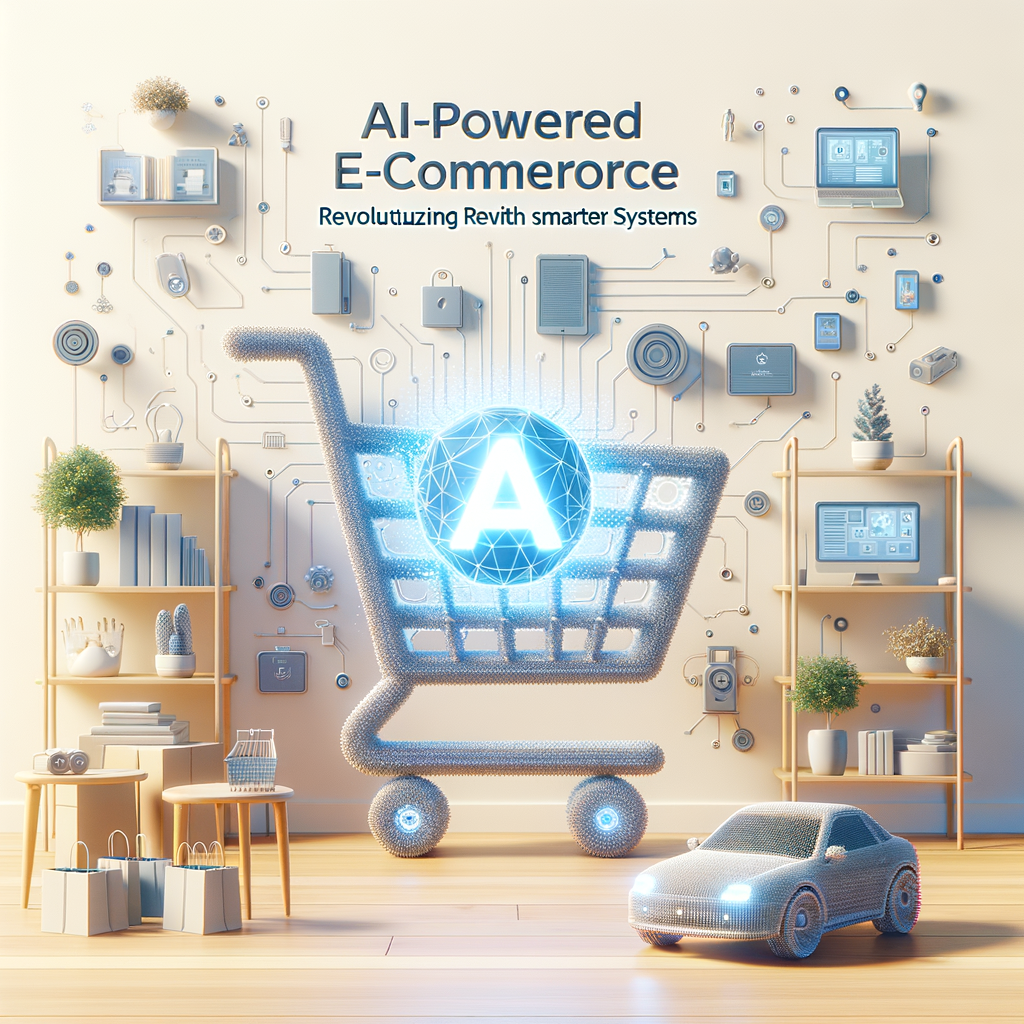
AI-Powered E-commerce: Revolutionizing Retail with Smarter Systems
Explore how AI is transforming the e-commerce landscape through personalized shopping experiences, intelligent product recommendations, and optimized supply chains. This blog delves into the innovative ways AI is enhancing customer engagement and driving business efficiency in the retail sector.
Introduction
In recent years, artificial intelligence has steadily crept into the e-commerce industry, promising to transform the way we shop online. AI technologies have become a driving force behind personalized shopping experiences, intelligent product recommendations, enhanced search, and improved inventory management. This article explores the ways AI is revolutionizing the retail sector, making it more efficient and consumer-friendly.
Personalized Shopping Experiences
Personalization is at the heart of modern e-commerce strategies. AI algorithms process vast amounts of consumer data to understand shopping habits and preferences, enabling retailers to offer tailored recommendations and promotions. These personalized experiences not only increase customer satisfaction but also drive sales and foster brand loyalty.
Recommendation Engines
Recommendation engines powered by AI analyze previous purchases, browsing history, and even social media behavior to suggest products that are most likely to interest a consumer. Companies like Amazon and Netflix have perfected this art, making suggestions that align closely with user preferences, thus improving engagement and conversion rates.
Intelligent Search and Discovery
Search efficiency is crucial for a seamless e-commerce experience. AI enhances search capabilities through natural language processing (NLP) and machine learning algorithms, helping consumers find what they're looking for quickly and intuitively. AI-powered search engines analyze search patterns and vocabulary to deliver more accurate and relevant results.
Inventory and Supply Chain Management
AI is revolutionizing supply chain management by predicting demand trends, optimizing inventory levels, and reducing overhead costs. Advanced algorithms forecast potential sales fluctuations, allowing businesses to adjust their stock and minimize the risk of overproduction or stockouts.
Demand Forecasting
With machine learning models, retailers can predict future sales volumes with high accuracy, reducing waste and increasing efficiency. These models incorporate variables like seasonality, consumer trends, and economic indicators to provide precise forecasts.
Enhancing Customer Service
AI-driven chatbots and virtual assistants have become indispensable tools in e-commerce, offering 24/7 customer support. These tools can answer queries, provide recommendations, and handle complaints effortlessly, significantly improving the customer service landscape.
Fraud Detection and Prevention
Fraudulent activities pose significant risks to online retailers. AI helps in identifying and preventing fraud by analyzing transaction patterns and detecting anomalies that might indicate suspicious activities. Machine learning models flag potential threats in real-time, protecting both the business and its customers.
Conclusion
As AI continues to evolve, its impact on the e-commerce sector becomes more profound. By providing personalized experiences, optimizing supply chains, enhancing customer service, and combating fraud, AI is reshaping the way businesses engage with consumers. Retailers embracing these technologies are not only improving their operational efficiency but also positioning themselves strategically for future success.
Future Prospects
Looking forward, the integration of AI in e-commerce will continue to grow, with advancements in AI technologies promising even deeper personalization and automation. Retailers who leverage these advancements will be on the cutting edge of innovation, leading the industry toward an AI-powered future where convenience and efficiency reign supreme.